The internet is full of nutrition advice, but a lot of it is flat-out wrong. From social media trends to outdated diet tips, myths about food and health continue to spread like wildfire. Even well-meaning influencers and articles can unintentionally keep these misconceptions alive. The result is a lot of confused eaters and frustrating health choices. In this list, we’re breaking down 30 nutrition myths that too many people still believe. The goal is to help you make smarter, science-backed decisions for your health.
Carbs Are the Enemy

Carbohydrates have long been vilified, especially in low-carb diet trends, but not all carbs are bad. In fact, complex carbohydrates like whole grains, vegetables, and legumes are packed with fiber, vitamins, and minerals. Cutting out all carbs can deprive your body of essential nutrients, leading to fatigue and digestive issues. It’s the refined, processed carbs—like white bread and sugary snacks—that should be limited in your diet. When consumed in moderation, healthy carbs can actually help maintain energy levels and support brain function. So, rather than fearing carbs, focus on choosing the right types.
Fat Makes You Fat
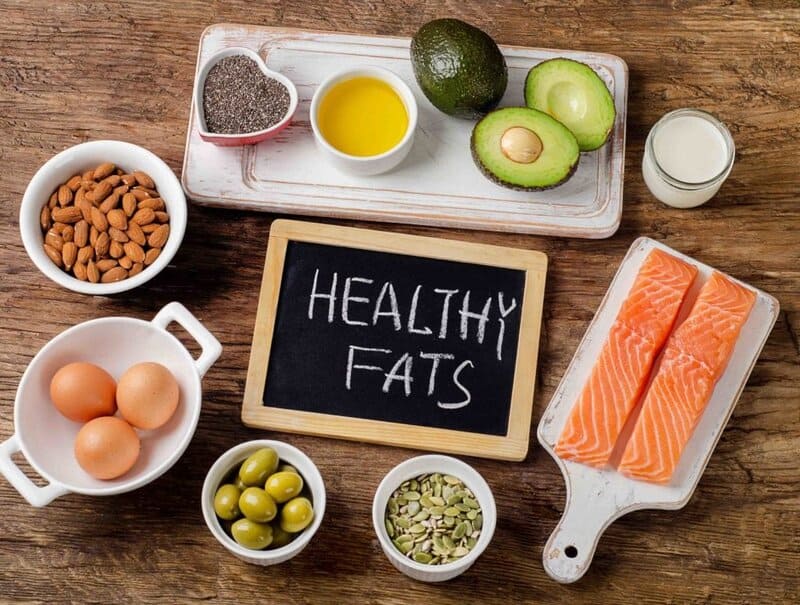
Another misconception is that eating fat will directly lead to weight gain. While it’s true that fats are calorie-dense, they’re also crucial for body functions such as hormone production, brain health, and nutrient absorption. Healthy fats found in avocados, olive oil, and nuts can promote feelings of fullness, potentially preventing overeating. Studies have shown that replacing unhealthy trans fats with unsaturated fats can improve heart health. So, don’t fear fats—just choose healthier sources and consume them in moderation. Your body needs fat to function optimally.
All Juices Are Healthy
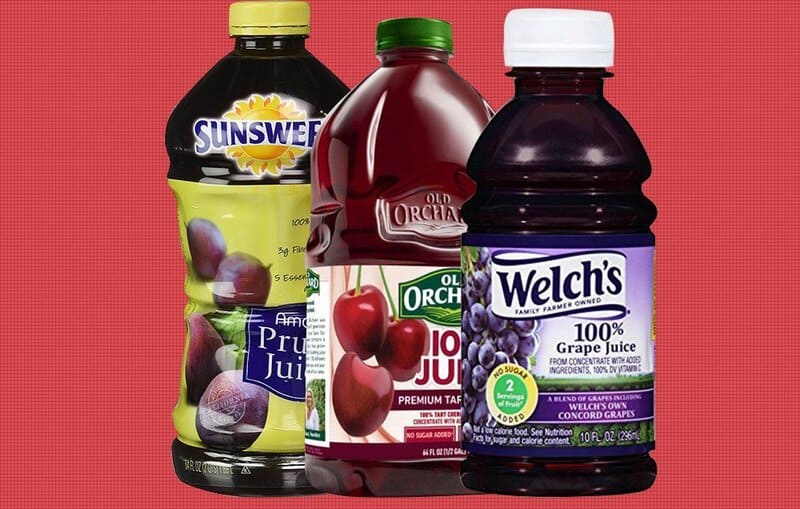
Juices, especially store-bought ones, often come with a hefty sugar load and lack the fiber found in whole fruits. While fresh-squeezed juice may retain some nutrients, it’s not a substitute for eating whole fruits and vegetables. Drinking excessive juice can spike blood sugar levels, contributing to weight gain and insulin resistance over time. Additionally, juices don’t provide the satiating fiber that keeps you full, making it easier to consume more calories than needed. In moderation, fresh juice can be a tasty treat, but it’s no replacement for real, whole foods. Stick to water or smoothies for more balanced nutrition.
You Should Avoid Gluten at All Costs
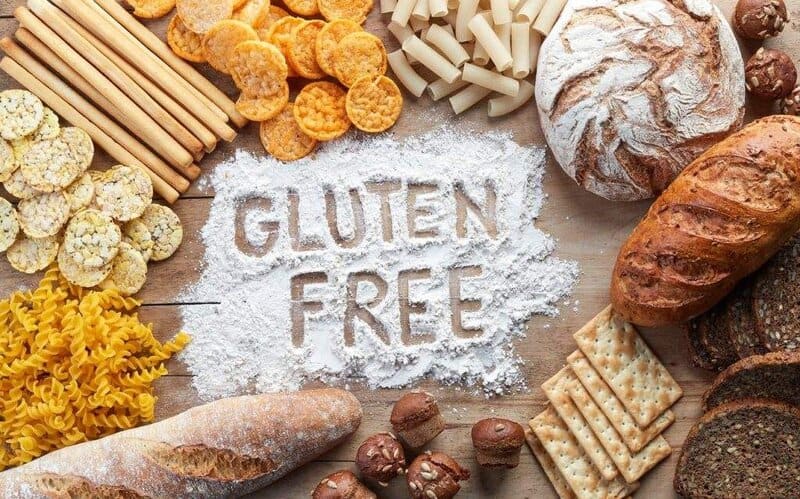
While gluten is a real issue for those with celiac disease or gluten intolerance, it’s unnecessary to avoid gluten entirely unless you have a medical condition. For most people, gluten—a protein found in wheat, barley, and rye—is perfectly safe and even part of a balanced diet. In fact, gluten-containing foods like whole grains provide valuable nutrients such as fiber, iron, and B vitamins. Gluten-free alternatives may be lower in fiber and more expensive without offering any extra health benefits. It’s important to distinguish between genuine gluten sensitivity and unnecessary avoidance. Always consult a healthcare professional before making drastic dietary changes.
Detox Diets Are Essential for Cleansing Your Body

Detox diets, often promoted as a way to rid the body of toxins, are generally unnecessary. Your liver and kidneys do a fantastic job of detoxifying naturally, and there’s no need to purchase special cleanses or restrictive detox plans. These diets often involve extreme restrictions that can lead to nutrient deficiencies or disrupt metabolism. In addition, many detox plans are high in sugar or processed ingredients that can actually harm the body’s natural detox process. Staying hydrated and eating a balanced diet with plenty of fruits, vegetables, and fiber is far more effective than any short-term detox. Focus on supporting your body’s natural detox system rather than relying on fads.
Eating After 8 PM Causes Weight Gain

This myth suggests that eating late at night will lead to weight gain, but it’s the total number of calories consumed throughout the day that matters most. It’s not about when you eat, but how much and what you eat. A late-night snack of healthy foods, like a small portion of yogurt or fruit, will not cause weight gain as long as it fits within your daily calorie needs. Moreover, eating smaller meals throughout the day can help maintain energy levels and prevent overeating later in the evening. The key is to make healthy choices at any time of the day and avoid excessive snacking. Timing is less important than what goes into your body.
Eating Fat-Free Means Healthy

Fat-free doesn’t always mean healthy. Many fat-free or low-fat products compensate for the lack of fat with added sugar, salt, and artificial ingredients to enhance flavor. This can often make the product less healthy overall. Healthy fats are essential for brain function, hormone regulation, and vitamin absorption. Opting for whole foods like nuts, seeds, and avocado, which provide healthy fats, is a better choice than relying on fat-free processed products. Moderation is key when it comes to fats, rather than avoiding them completely.
Sugar-Free Means No Sugar Impact

Sugar-free foods can still have an impact on your body’s sugar levels. Many sugar-free products contain sugar alcohols or artificial sweeteners, which can cause digestive issues, and in some cases, raise blood sugar levels. Additionally, some studies suggest that consuming artificial sweeteners can lead to increased cravings for sugary foods. While sugar-free products may be lower in calories, they’re often processed and lacking in nutritional value. It’s better to opt for natural, whole foods with minimal processing. Always read labels carefully and focus on reducing overall sugar intake.
Eating More Protein Builds Muscle Faster

While protein is crucial for muscle repair and growth, eating excessive amounts won’t necessarily speed up the process. The body has a limit to how much protein it can effectively use for muscle building. Consuming more protein than your body needs will not result in more muscle growth and may even lead to kidney strain over time. A balanced diet that includes adequate protein, along with healthy fats and carbohydrates, supports overall fitness and muscle development. If you’re engaging in regular strength training, ensure you’re getting the right amount of protein based on your activity level. Focus on quality over quantity when it comes to protein.
All Calories Are Created Equal
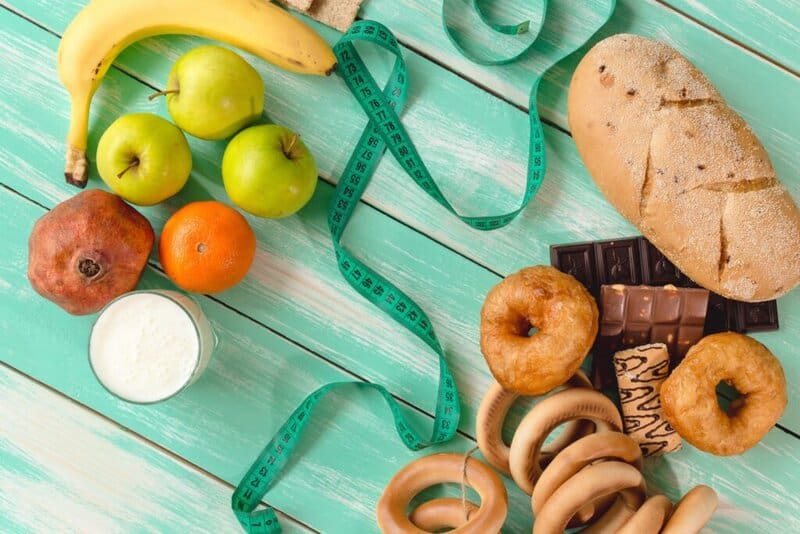
The idea that “a calorie is a calorie” doesn’t fully capture the complexities of nutrition. While calorie intake is important for weight management, the source of those calories can make a significant difference. For example, 100 calories from a sugary soda are processed much differently by the body compared to 100 calories from a serving of almonds. Nutrient-dense foods provide vitamins, minerals, and fiber, which contribute to overall health, while empty-calorie foods may contribute to weight gain and nutrient deficiencies. Prioritize nutrient-dense foods that fuel your body and support overall wellness. Quality and source matter just as much as quantity.
Eating More Fiber Will Always Improve Digestion

Fiber is essential for digestive health, but it’s not a one-size-fits-all solution. For some people, especially those with certain gastrointestinal conditions like irritable bowel syndrome (IBS), consuming too much fiber can cause bloating, gas, and discomfort. It’s important to gradually increase fiber intake and drink plenty of water to help it move through the digestive system. Soluble fiber, found in foods like oats and beans, can help regulate digestion, while insoluble fiber, found in whole grains and vegetables, promotes regularity. Always pay attention to your body’s reactions and adjust your fiber intake accordingly. Balance and variety are key when it comes to fiber consumption.
Coconut Oil Is a Superfood
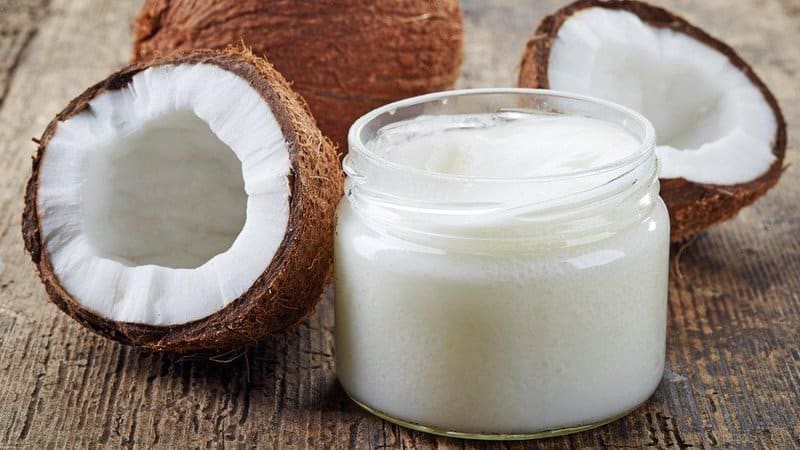
Coconut oil has gained popularity as a “superfood,” but it’s not all it’s cracked up to be. While it does contain medium-chain triglycerides (MCTs), which may have some health benefits, it’s also high in saturated fat. Overconsumption of saturated fats can raise cholesterol levels and increase the risk of heart disease. Moderation is key when using coconut oil in cooking or as a supplement. Incorporating a variety of healthy fats, such as olive oil, nuts, and seeds, is a better strategy for heart health. While coconut oil can be part of a healthy diet, it should not be considered a miracle food.
Vegan Diets Are Automatically Healthier

Vegan diets can be incredibly healthy, but they’re not guaranteed to be. While plant-based diets are rich in fruits, vegetables, legumes, and whole grains, it’s still possible to rely on processed vegan foods that are high in sugar, sodium, and unhealthy fats. A balanced vegan diet requires careful planning to ensure you’re getting enough protein, iron, calcium, vitamin B12, and other nutrients commonly found in animal products. Relying on processed meat substitutes or fried vegan foods can counteract the health benefits of a plant-based diet. It’s important to focus on whole, nutrient-dense foods, regardless of whether you’re vegan or not. Education and planning are crucial for a successful vegan lifestyle.
All Calories from Alcohol Are Empty Calories

Alcohol is often labeled as “empty calories,” but this isn’t entirely accurate. While alcohol does provide calories without significant nutrients, it can still offer energy to the body. Some alcoholic drinks, like red wine, contain small amounts of antioxidants that may have potential health benefits when consumed in moderation. However, excessive alcohol consumption can lead to liver damage, weight gain, and other health issues. Moderation is key when consuming alcohol. It’s important to account for the calories from alcohol in your overall daily intake to maintain balance.
You Can Lose Weight with “Fat-Burning” Supplements

Many people turn to fat-burning supplements in the hopes of losing weight quickly. However, there is little scientific evidence to support the effectiveness of most fat-burning products. These supplements are often loaded with stimulants or laxatives, which may lead to temporary weight loss through dehydration or increased metabolism. In the long term, the body tends to adjust, and the weight returns once the supplements are discontinued. Sustainable weight loss comes from a combination of a balanced diet, regular physical activity, and lifestyle changes. There’s no magic pill for weight loss—patience and consistency are key.
You Need Supplements to Meet Your Nutritional Needs

Supplements can be helpful in certain situations, but they’re not a replacement for a well-rounded diet. Most people can get the nutrients they need from whole foods, including fruits, vegetables, whole grains, lean proteins, and healthy fats. Over-reliance on supplements can lead to imbalances and excess intake of certain nutrients. If you suspect a deficiency, it’s important to consult a healthcare provider before turning to supplements. Whole foods provide a wide range of nutrients that work together to support overall health, something that isolated supplements cannot replicate. Be mindful of marketing claims and focus on nutrient-dense food options.
The More You Sweat, the More Calories You Burn

Sweating doesn’t necessarily equate to burning more calories. While intense physical activity may make you sweat more, the amount you sweat is primarily a result of your body’s efforts to cool down, not an indicator of fat loss. It’s the intensity, duration, and type of exercise that determine how many calories you burn. For example, strength training might not make you sweat as much as cardio, but it still burns significant calories and helps build muscle. Tracking calories burned through heart rate or fitness trackers can provide more accurate data than sweating alone. So, focus on the quality of your workout, not the amount of sweat.
Fresh Vegetables Are Always Better Than Frozen

Fresh vegetables are often thought to be nutritionally superior to frozen, but this is not always the case. In many cases, frozen vegetables are just as nutritious as fresh ones, sometimes even more so. Vegetables are often frozen soon after harvest, preserving their vitamins and minerals. Fresh vegetables, on the other hand, may lose some of their nutrients during transportation and storage. Both fresh and frozen vegetables can be part of a healthy diet, depending on your preferences and availability. It’s important to choose the option that works best for your lifestyle and budget.
You Should Drink 8 Glasses of Water a Day

The “8 glasses a day” rule is outdated and overly simplistic. Your hydration needs vary depending on factors like age, activity level, climate, and diet. For instance, if you’re physically active or in a hot climate, you may need more water. Additionally, many foods, such as fruits, vegetables, and soups, contribute to hydration. Instead of focusing on a set number of glasses, aim to drink enough water so that your urine is pale yellow, indicating proper hydration. Listen to your body’s thirst signals to guide your fluid intake.
Protein Shakes Are Necessary After Every Workout

Protein shakes are popular among athletes and fitness enthusiasts, but they’re not essential for everyone. Unless you’re engaging in intense or frequent exercise, your body can usually get all the protein it needs from whole foods. Foods like chicken, tofu, eggs, and beans provide the same protein benefits as shakes, without the added sugars or artificial ingredients found in many pre-made protein powders. For most people, consuming protein throughout the day is enough to support muscle repair and growth. If you find it difficult to meet your protein needs through food alone, a shake might be a convenient option, but it’s not required. Prioritize whole food sources of protein whenever possible.
Raw Vegetables Are Always Healthier Than Cooked
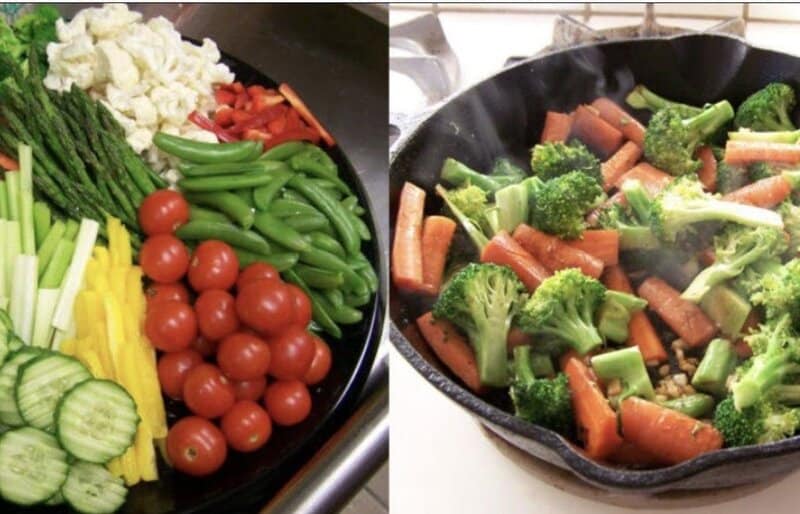
While raw vegetables are packed with nutrients, cooking can actually enhance the bioavailability of certain nutrients. For example, cooking tomatoes increases the levels of lycopene, an antioxidant linked to heart health. Similarly, cooking spinach makes iron more accessible to the body. Some vegetables, like carrots and sweet potatoes, provide more antioxidants when cooked, while others, like broccoli and kale, are better eaten raw to preserve their vitamin C. A balanced diet should include both raw and cooked vegetables to ensure you’re getting the full range of nutrients. Variety is key.
Eating More Meals Prevents Weight Gain

The idea that eating several small meals throughout the day boosts metabolism and prevents weight gain is not universally true. What matters more is the total number of calories you consume, not how many meals you eat. In fact, some studies have shown that eating more frequently can actually lead to overeating or mindless snacking, contributing to weight gain. On the other hand, intermittent fasting, where you eat within a specific time window, may help some people manage their weight more effectively. It’s important to listen to your hunger cues and find an eating schedule that works for you. Ultimately, it’s about portion control and nutrient-dense choices.
You Can’t Get Enough Protein on a Plant-Based Diet

Many people assume that a plant-based diet can’t provide enough protein, but there are plenty of plant-based sources rich in protein. Foods like beans, lentils, tofu, tempeh, quinoa, nuts, and seeds are excellent protein options. With careful planning, vegans and vegetarians can easily meet their protein needs while also benefiting from the fiber, vitamins, and antioxidants that plant-based foods offer. The key is to diversify protein sources to ensure you’re getting all the essential amino acids. Animal products aren’t the only sources of protein, and many plant-based options are just as complete and nutrient-dense. There’s no need to worry about protein deficiency on a well-balanced plant-based diet.
A Low-Calorie Diet Is Always Best for Weight Loss

The concept of a low-calorie diet being the golden ticket for weight loss is an oversimplification. While calorie reduction is important for weight loss, the quality of the calories you consume plays a crucial role. Focusing solely on cutting calories can lead to nutrient deficiencies, reduced metabolism, and muscle loss. It’s more effective to focus on a balanced, nutrient-dense diet that supports long-term health rather than simply slashing calories. Including protein, healthy fats, and plenty of vegetables can help you feel full and satisfied while losing weight. A sustainable, well-rounded approach is far more effective than extreme calorie restriction.
Cholesterol in Eggs Raises Your Cholesterol

For years, eggs were considered a food to avoid due to their cholesterol content, but newer research shows that eggs have little to no impact on most people’s blood cholesterol levels. While eggs are high in dietary cholesterol, they do not raise “bad” LDL cholesterol for the majority of people. Eggs are an excellent source of protein, vitamins, and minerals, including vitamin D and choline. Eating eggs in moderation as part of a balanced diet can support overall health. However, if you have specific concerns about cholesterol or heart disease, it’s best to consult with a healthcare provider. Eggs can be part of a healthy diet for most people.
All Processed Foods Are Bad for You

Not all processed foods are inherently unhealthy. The term “processed” refers to foods that have been altered in some way, and not all processed foods are unhealthy. For example, frozen vegetables, canned beans, and whole-grain bread are all processed but still provide essential nutrients. The key is to distinguish between minimally processed foods that retain most of their nutritional value and highly processed junk foods loaded with sugar, unhealthy fats, and artificial ingredients. When selecting processed foods, opt for those with few additives and as close to their natural state as possible. It’s about choosing wisely and focusing on overall dietary balance.
You Need Dairy for Strong Bones

While dairy products are a good source of calcium, they’re not the only option for maintaining bone health. Many non-dairy foods like leafy greens, fortified plant milks, tofu, almonds, and sesame seeds are rich in calcium. Additionally, other nutrients such as vitamin D and magnesium play a vital role in bone health, and they can be found in various non-dairy sources. People who avoid dairy can still maintain healthy bones by including a variety of calcium-rich foods in their diet. It’s important to balance calcium intake with adequate levels of vitamin D, which is essential for calcium absorption. Dairy isn’t a requirement for strong bones.
High-Salt Diets Are Fine if You’re Healthy

Many people believe that a high-salt diet is only a concern for those with pre-existing health conditions, but excessive sodium can still cause issues in healthy individuals. A diet high in salt can contribute to high blood pressure over time, which increases the risk of heart disease and stroke. Even if you’re not currently experiencing symptoms, regularly consuming too much sodium can damage your cardiovascular health. The American Heart Association recommends limiting sodium intake to less than 2,300 milligrams per day. Opting for fresh, whole foods and minimizing processed foods can help reduce your sodium intake. It’s a good idea to monitor your salt consumption for long-term health benefits.
Natural Sugar Is Better Than Added Sugar

While natural sugars found in fruits and vegetables come with fiber, vitamins, and minerals, they’re still sugar. The key difference is that whole foods with natural sugars provide a balanced nutrient profile that helps the body process sugar more slowly. On the other hand, added sugars—like those found in sugary drinks, candies, and processed foods—are often absorbed quickly and can spike blood sugar levels. That said, consuming whole fruits and vegetables is far better for your health than consuming products with added sugars. Moderation is important, and it’s always best to focus on whole, minimally processed foods. Natural sugar isn’t a free pass for excessive sweetness in your diet.
Saturated Fat Is Always Bad

Saturated fat has long been labeled as unhealthy, but the relationship between saturated fat and heart disease is more complex than once thought. Some studies suggest that the link between saturated fat and heart disease may not be as strong as previously believed. Furthermore, the source of saturated fat matters—coconut oil, grass-fed beef, and full-fat dairy products contain different types of saturated fats than processed snacks or fast food. Moderation is important, and balancing fat intake with unsaturated fats from sources like olive oil and avocados is a healthier approach. It’s essential to focus on the overall quality of your diet, rather than fixating on individual nutrients. Saturated fat can be part of a healthy diet when consumed in appropriate amounts.

